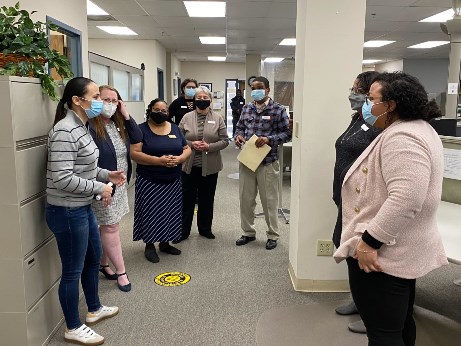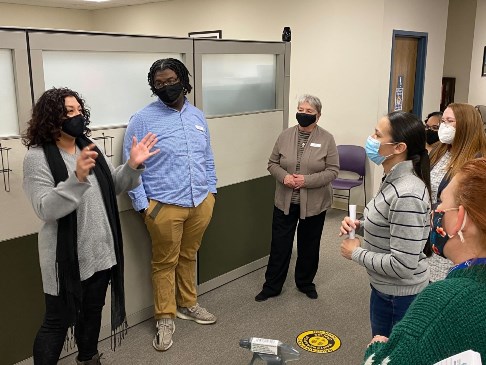U.S. Rep. Sharice Davids, D-3rd Dist., recently voted to pass major economic legislation aimed at addressing current supply chain issues and promoting long-term American competitiveness.
The America Competes Act contains several of Davids’ priorities, including incentives for domestic semiconductor manufacturing, resources to strengthen supply chains and reduce inflation, and policies that will promote American global leadership among countries like China. Davids’ amendment also passed the House, ensuring that small and mid-sized manufacturers are given opportunities to participate in federal supply chain upgrades.
Speaking on the House floor last week, Rep. Davids drove home the need to address rising costs by making more goods in America, citing manufacturers in the Third District that stand ready to pitch in, hire, and train workers.
Rep. Davids’ speech is on YouTube at www.youtube.com/watch?v=6v1CCJcO6aU.
“For years, we have been too reliant on goods made in other countries. The pandemic has exacerbated and exposed that reality, with shortages from personal protective equipment to ventilators to semiconductor chips. Those supply chain weaknesses continue to contribute to rising prices and inflation,” Rep. Davids said. “We should be making more in America, and we have many small businesses in Kansas and across the country that are willing and able to step up to the plate.”
The America Competes Act includes a program to reexamine and update the Strategic National Stockpile supply chain to avoid medical equipment shortages during national emergencies, as we saw early in the pandemic. Davids’ amendment ensures that small and medium manufacturers are considered in that program, not just big corporations. She has been a champion of American manufacturing throughout the pandemic, introducing legislation last year that was inspired by the story of Lenexa-based manufacturer Dentec Safety Specialists. The Supplies Act would create a grant program for small and medium manufacturers that shift their production to manufacture PPE.
Additionally, the America Competes Act delivers incentives for domestic semiconductor, or “chip,” production. According to a Joint Economic Committee report, the U.S. has lost over a quarter of its manufacturing jobs since 2000, and production of critical materials like chips—which are used in computers, cars, washing machines, and more—has increasingly moved overseas. This shortage has been contributing to inflation and supply chain difficulties across industries. Rep. Davids recently visited local medical device suppliers who have been struggling to serve patients as their CPAP machines and oxygen monitors require chips and are delayed by the ongoing shortage.
“Chips are essential components of the things Kansans use every day, from cars to computers to CPAP machines, and the shortage has been driving prices up across industries. I voted to incentivize manufacturing of these crucial materials here at home, so we can start to bring down costs on those everyday items and bolster domestic manufacturing jobs,” Rep. Davids said.
“The Greater Kansas City Chamber of Commerce is excited to see the America Competes Act pass out of the U.S. House today and head to Conference Committee along with the already Senate-passed USICA. These bills are critical to advancing the technological capabilities of our nation while bringing new investments in research, innovation, and American manufacturing to the Greater Kansas City region,” said Joe Reardon, president and CEO of Greater Kansas City Chamber of Commerce, in a statement last week. “Particularly, the Chamber is happy that both bills establish a regional technology and innovation hub program that incentivizes collaborative partnerships to promote and support regional technology and innovation hubs. The Chamber will continue to advocate for those hubs to be included in the final bill on behalf of the Kansas City region. And we will continue to advocate for legislation that turbocharges our research capacity to lead the technologies of the future, solidifies and accelerates U.S. production of critical semiconductor chips, strengthens the supply chain to make more goods in America, and advances our global competitiveness.”
The America Competes Act has a bipartisan companion in the Senate and support from the National Association of Manufacturers and the AFL-CIO. A fact sheet on the America Competes Act is available here from the Joint Economic Committee, of which Davids is a member.
- Story from Rep. Sharice Davids’ office


